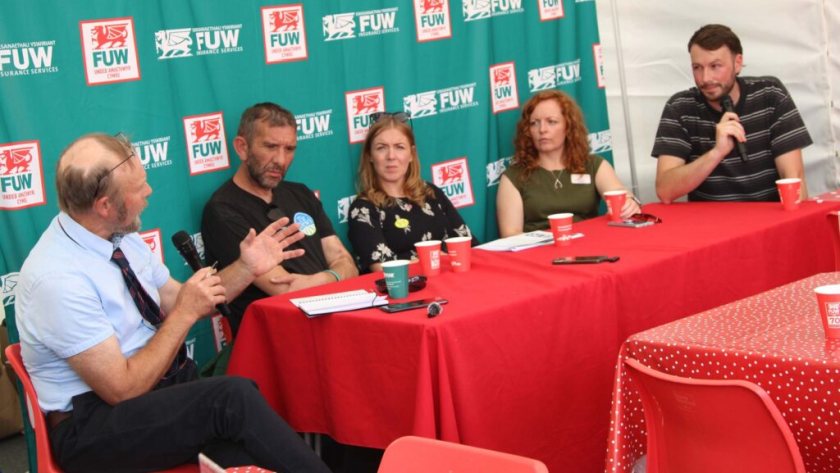
The future of the Welsh language is inseparable from the future of Welsh farming – that was the message at a packed panel discussion hosted by the Farmers’ Union of Wales (FUW) at this year’s National Eisteddfod in Wrexham.
Speakers at the week-long festival, which is Europe’s largest celebration of culture, stressed the crucial role agriculture plays in sustaining Wales’ cultural identity.
The 2021 census revealed that over 43% of people working in agriculture, forestry and fishing speak Welsh – the highest proportion of any industry.
This is particularly true in stronghold counties such as Ceredigion, Gwynedd, and Anglesey, where farming is often the economic backbone and Welsh is the everyday language of work, trade, and community life.
Panel members noted that farm families are often multi-generational custodians of both the land and the language, passing down not only agricultural skills but also Welsh idioms, place names, and oral traditions.
Agricultural shows, livestock markets, and cooperative meetings remain some of the few public spaces where Welsh is the dominant working language, making farming communities vital to its everyday use.
FUW regional vice-president Alun Owen said this connection could not be overlooked: “Crucially, the discussion also provided a timely reminder of farming's vital role as the backbone of our rural communities, preserving the Welsh language and our heritage.
"It's clear that if we want the Welsh language to survive and thrive amidst today's pressures, greater government support for the farming sector from both Cardiff and Westminster is essential.”
Animal health concerns also dominated the conversation, with FUW policy officer, Elin Jenkins and Bedwyr Roberts from Daleside Vets warning of the evolving threat from bluetongue alongside the ongoing crisis caused by bovine TB.
Both spoke of the heavy financial burden and relentless stress the disease inflicts on farm businesses.
Mental health was a recurring theme. Wyn Thomas from the mental health charity Tir Dewi revealed that he has seen a sharp rise in calls for help in recent months, much of it linked to bTB.
He stressed that the impact was felt not only by farmers dealing directly with outbreaks but also by neighbours and wider rural communities living under constant threat.
Lastly, attention also turned to the FUW’s latest policy report, A Mandate for Future Farmers, launched at last month’s Royal Welsh Show.
Gwenno Davies, FUW Insurance Services Ltd’s account executive, highlighted surging land prices as a major obstacle for new entrants, warning that without targeted support, many aspiring young farmers will be locked out of the industry.
